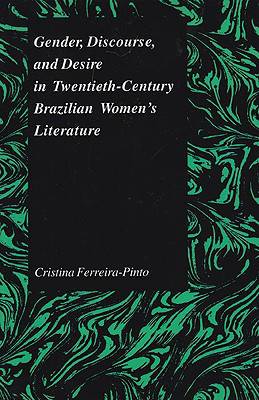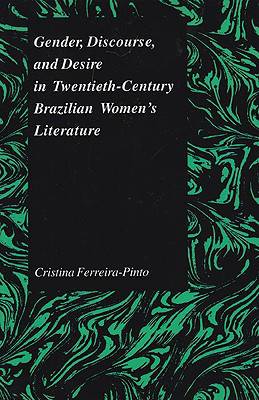
- Afhalen na 1 uur in een winkel met voorraad
- Gratis thuislevering in België vanaf € 30
- Ruim aanbod met 7 miljoen producten
- Afhalen na 1 uur in een winkel met voorraad
- Gratis thuislevering in België vanaf € 30
- Ruim aanbod met 7 miljoen producten
Zoeken
Gender, Discourse, and Desire in Twentieth-Century Brazilian Women's Literature
Cristina Ferreira-Pinto
€ 55,95
+ 111 punten
Omschrijving
This study by Cristina Ferreira-Pinto explores the poetic and narrative strategies twentieth-century Brazilian women writers use to achieve new forms of representation of the female body, sexuality, and desire. Female writers discussed include: Gilka Machado, Lygia Fagundes Telles, Marcia Denser, and Marina Colasanti. While creating new forms, these writers are also deconstructing cultural myths of femininity and female behavior. In order to understand these myths, the book also presents new readings of some male-authored canonical novels by Jose de Alencar, Machado de Assis, Manuel Antonio de Almeida, and Aluisio Azevedo. The specific focus on female sexuality and desire acknowledges the intrinsic link between sexuality and an individual's sense of identity, and its importance for female identity, given the historical repression of women's bodies and the double standard of morality still pervasive in many Western cultures. In the discussion of the strategies Brazilian female poets and fiction writers employ, Ferreira-Pinto addresses some social and cultural issues that relate to a woman's sense of her own body and sexuality: the characterization of women based on racial features and class hierarchy; marriage; motherhood; the silencing of the lesbian subject; and aging. Ferreira-Pinto's analysis is informed by the works of various and diverse critics and theoreticians, among them Helene Cixous, Teresa De Lauretis, Adrienne Rich, Gloria Anzaldua, Georges Bataille, and Wilhelm Reich.
Specificaties
Betrokkenen
- Auteur(s):
- Uitgeverij:
Inhoud
- Aantal bladzijden:
- 207
- Taal:
- Engels
- Reeks:
- Reeksnummer:
- nr. 29
Eigenschappen
- Productcode (EAN):
- 9781557533524
- Verschijningsdatum:
- 1/02/2004
- Uitvoering:
- Paperback
- Formaat:
- Trade paperback (VS)
- Afmetingen:
- 154 mm x 229 mm
- Gewicht:
- 367 g

Alleen bij Standaard Boekhandel
+ 111 punten op je klantenkaart van Standaard Boekhandel
Beoordelingen
We publiceren alleen reviews die voldoen aan de voorwaarden voor reviews. Bekijk onze voorwaarden voor reviews.







